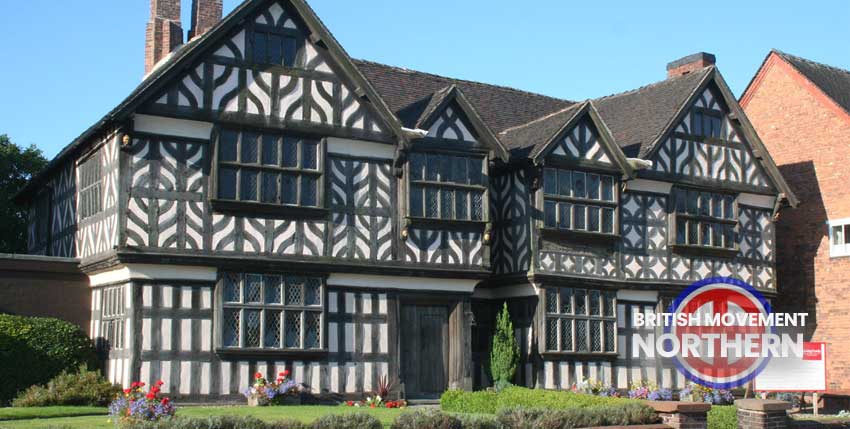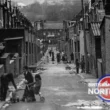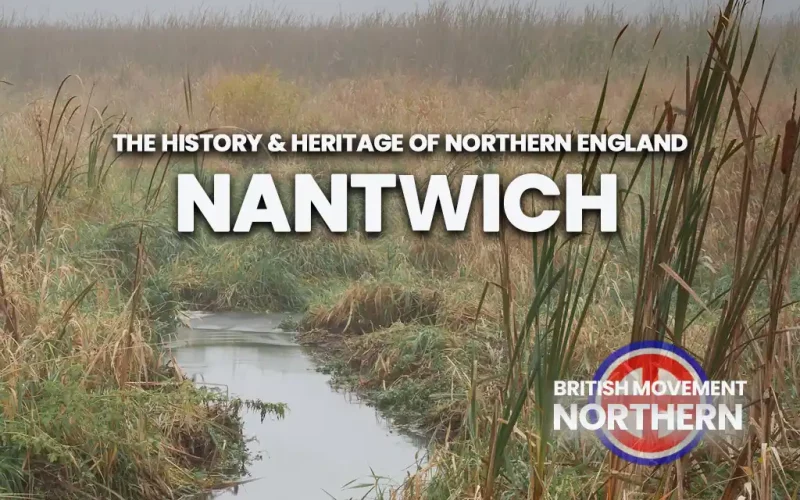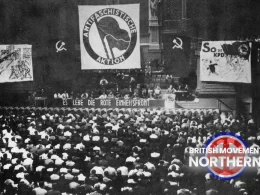Nantwich in Cheshire is not a large town even today, but has a strong sense of history and has many fine historic buildings amongst its streets.
There are no records of a settlement at the site of modern Nantwich before the Roman Occupation of Britain, but the town sits in a region of England which in the pre-Roman period was controlled by the Celtic tribe, the Cornovii, a people who ruled over a territory which overlapped modern day Cheshire and parts of Wales.
The Welsh influence on this part of western Cheshire was significant, the name Nantwich is derived from two old Welsh words, “Nant” – a stream and “Wich” or “Wych” – a brine or saltwater well or spring. Some historians believe that Nantwich was a site sacred to the Celtic tribes, a ‘nemeton’ or sacred grove.
When the Romans took control of the area, they were quick to exploit the naturally occurring salt deposits, and a settlement was established where salt was mined and processed before being transported to the Roman garrisons at Chester and Stoke on Trent.
The first references to Nantwich by name came in the Anglo-Saxon period when ‘Nantwihc’ became a place to extract salt for the kingdom of Mercia. Across the Anglo-Saxon period there were frequent incursions from the Welsh kingdoms, particularly by war bands from the kingdom of Powys.
After the Norman Conquest following 1066, the area around ‘Nantwihc’ and the Cheshire Plain once again became an important area for extracting salt. The route to Chester and in particular the nearby crossing point on the River Weaver became strategically important. So in 1180 a Norman castle was built at Nantwich to guard the vital river crossing. Norman taxation records detail Nantwich in the year 1194.
Across the medieval period Nantwich grew in importance, becoming the second most important town in Cheshire after the city of Chester. In the 14th Century a cattle market was officially established in the town and alongside the existing salt industry, tanning leather became locally important. By 1530 there were over 400 ‘salt houses’ operating from Nantwich.
In December 1583 disaster struck the town when the ‘Great Fire of Nantwich’ swept through the timber and thatch houses and commercial buildings, destroying a large part of the town. Slowly Nantwich was rebuilt only to suffer the ravages of the English Civil War.
The town declared for Parliament and subsequently stood against the Royalist forces in the region, Nantwich was besieged several times. The last major siege was broken by a Parliamentary army resulting in the Battle of Nantwich on January 26th 1644, where the Royalist army was defeated and driven off, never to return.
Across the 17th and 18th centuries, Nantwich remained a thriving market town, with a strong local salt producing industry. The Industrial Revolution never brought heavy industry to the town, although a cotton mill was established on the site of an earlier water mill. There was no great expansion of the town’s population, even across the 19th Century.
In the 20th Century Nantwich has continued in its traditional role, the historic centre of the town with its fine Tudor buildings has made it a focus for tourism. It continues to reflect the image of rural Cheshire.
Nantwich is a White town; the most recent census data gives the population break down as 96.01 % White British and other White nationalities, including Irish and Eastern Europeans. In Nantwich, ethnic minorities are truly a minority of the town’s population.

Resources
Bottom Image: Churche’s Mansion, Espresso Addict, CC BY-SA 3.0, via Wikimedia Commons.
The British Movement welcomes articles for possible inclusion on this site from members and supporters across the North of England. Please remember that we have to operate within the laws of this country – we will not include any content that is against the current laws of the United Kingdom. News reports should be topical and be relevant to the regions covered by this website.












